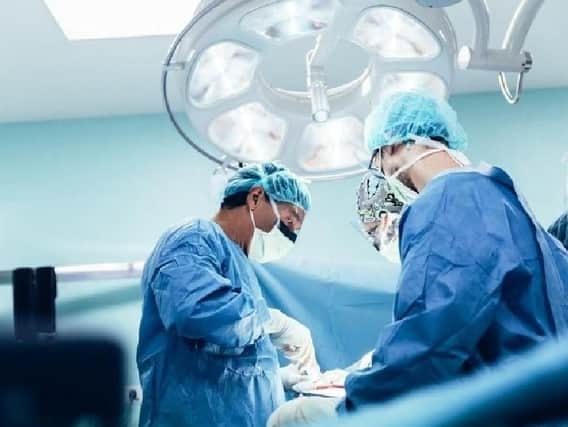Coroner's concern after three deaths from routine heart ops


Before the Ecolab Ultracover cover was brought in last year, there had been one oesophageal tear in just 16 years, said a coroner’s report that followed the inquest into Margaret Clark’s death.
Experienced medics routinely carried out the transoesophageal echocardiograms (TOEs) for years without incident before the sheaths were introduced, with one blamed on playing a key part in the 75-year-old’s death.
Advertisement
Hide AdAdvertisement
Hide AdBosses at Blackpool Victoria Hospital, which runs the Lancashire Cardiac Centre that gave Mrs Clark the procedure, raised the alarm with the Medicines and Healthcare products Regulatory Agency (MHRA) and have stopped using the product.
An investigation carried out there ‘expressed a concern that the tears may have resulted from the use of the Ecolab sheaths, which [it was felt] created more resistance on insertion than had been the case before their use’, a report by Lancashire’s assistant coroner Simon Jones said.
In a rare regulation 28 report, which coroners can issue if they think more tragedies may happen, he told the MHRA: “I believe you should review the use of the Ecolab sheaths and consider whether they should not be replaced in all hospitals and trusts,” by the alternative, softer sheath.
Ecolab, however, said an internal review found the devices ‘meet all product performance requirements’, and that it ‘understands the MHRA does not intend to pursue this matter’.
Advertisement
Hide AdAdvertisement
Hide AdDuring her procedure on Tuesday, May 9 last year, Mrs Clark’s oesophagus, the long, muscular tube connecting the mouth to the stomach, was torn, her inquest heard.
The widowed housewife, from Castlefield in Ambleside, was transferred to Royal Preston Hospital, where the tear was repaired, but she died from sepsis as a result of the injury on Saturday August 12.
The inquest was opened in November, and concluded in February, saying Ms Clark ‘died from a rare but recognised complication of surgery’, Mr Jones’s report said.
He told the MHRA: “In my opinion, action should be taken to prevent future deaths and I believe you have the power to take such action.”
Advertisement
Hide AdAdvertisement
Hide AdHe asked the department to respond to his report within 56 days, and sent a copy to Mrs Clark’s daughter Valerie, Blackpool Teaching Hospitals NHS Foundation Trust, and Blackpool’s coroner Alan Wilson.
Since retired, he could not be reached to clarify whether the three deaths in five months happened locally or nationally, but at least two happened at Blackpool Victoria Hospital, The Gazette understands.
The hospital’s deputy medical director Dr Nick Harper offered his condolences to Mrs Clark’s family, and said: “We did complete an MHRA alert regarding the sheaths, using the established process following an internal investigation, and have stopped using the sheaths until all investigations have been completed in relation to their safety.
“We have worked with the coroner throughout his investigation.”
Advertisement
Hide AdAdvertisement
Hide AdA spokeswoman for the MHRA, whose job it is to ensure medical devices in the UK, when used correctly, will work properly and are ‘acceptably safe’, said the department had responded to Mr Jones’ report.
But she said she was ‘unable to provide further information’ because ‘we can’t share information about specific manufacturers, makes, or models of devices’.
“Please be reassured that, even though we can’t give you details on this specific device, any reported received by MHRA is assessed by our specialists and action is taken as appropriate to protect public health.”
An Ecolab spokeswoman confirmed the NHS was still ‘a customer’, but said: “We are not in a position to confirm if the product is being used by the NHS.
“This is information the NHS should provide.”
Advertisement
Hide AdAdvertisement
Hide AdShe added: “We co-operated with the MHRA and initiated an internal review.
“We determined that the protective sheaths referred to in this report meet all product performance requirements.
“The technical files for the protective sheaths have been assessed by our notified body to be fully compliant to European council directive 93/42/EEC.
“We understand that the MHRA does not intendto pursue this matter, and continues to monitor the general use of protective sheaths.
Advertisement
Hide AdAdvertisement
Hide Ad“The protective sheath was introduced in 2010. In 2017, approximately 5,000 were sold in the UK.”
Although taken off the shelves in Blackpool, the sheaths are being used at Royal Preston Hospital, where TOEs are also carried out.
A spokesman said no concerns have been raised with the hospital about their use, and no incidents, such as tears, have been reported in the past five years.
